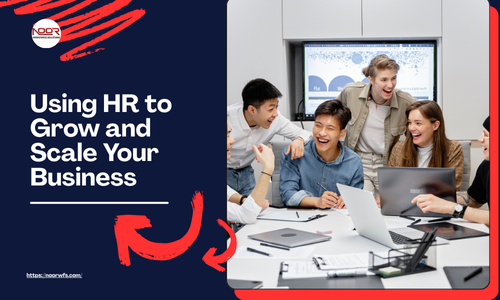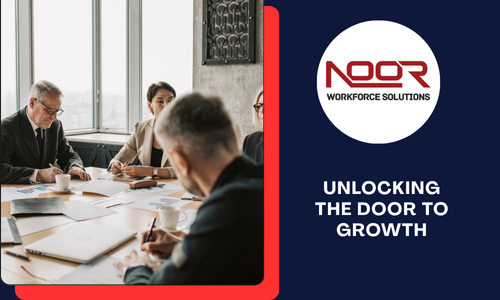When people think about business growth, they usually picture sales, marketing, or technology. But one of the most powerful engines of growth is often overlooked — Human Resources (HR).
Whether you’re a small startup or an established organization, building a strong HR foundation can mean the difference between chaotic growth and sustainable success.
HR isn’t just about paperwork, compliance, or employee onboarding. It’s about aligning your people strategy with your business strategy. Even if you have only one employee, establishing an HR framework early sets the tone for your company culture and future scalability.
Find more with Noor Workforce SolutionsBuilding an HR Roadmap Before You Scale
Think of HR as your roadmap. It’s much easier to create a path before you start driving. Having handbooks, organizational charts, job descriptions, and performance templates ready before hiring your next employee saves you from chaos later.
When you’re proactive, you’re not scrambling to react to issues. You’re leading with intention. That’s what separates successful, scalable businesses from those that struggle to keep up with their own growth.
One of the biggest mistakes growing businesses make is waiting too long to invest in the right systems. Whether it’s an HRIS, payroll software, or applicant tracking system, the tools you choose now should be scalable for the future. Imagine winning a large contract that requires onboarding 50 employees — only to realize your system can’t handle the load. That’s why forward-thinking businesses plan their HR infrastructure before scaling up.
As your team expands across states or even countries, HR compliance becomes more complex. Each region has its own labor laws, tax requirements, and employment regulations. Having the right HR partner means you’re never caught off guard.
A skilled HR team — whether in-house or outsourced — keeps you compliant and helps build a healthy workplace culture. Because HR isn’t just your safety net. It’s your insurance policy for growth. You don’t wait for a problem to invest in HR; you build it in so you’re protected before anything goes wrong.








